第22章 CHAPTER VII(3)
I want to be always in company with these, with earth, and sun, and sea, and stars by night. The pettiness of house-life--chairs and tables--and the pettiness of observances, the petty necessity of useless labour, useless because productive of nothing, chafe me the year through. I want to be always in company with the sun, and sea, and earth. These, and the stars by night, are my natural companions.My heart looks back and sympathises with all the joy and life of ancient time. With the circling dance burned in still attitude on the vase; with the chase and the hunter eagerly pursuing, whose javelin trembles to be thrown; with the extreme fury of feeling, the whirl of joy in the warriors from Marathon to the last battle of Rome, not with the slaughter, but with the passion--the life in the passion; with the garlands and the flowers; with all the breathing busts that have panted beneath the sun. O beautiful human life! Tears come in my eyes as I think of it. So beautiful, so inexpressibly beautiful!
So deep is the passion of life that, if it were possible to live again, it must be exquisite to die pushing the eager breast against the sword. In the flush of strength to face the sharp pain joyously, and laugh in the last glance of the sun--if only to live again, now on earth, were possible. So subtle is the chord of life that sometimes to watch troops marching in rhythmic order, undulating along the column as the feet are lifted, brings tears in my eyes.
Yet could I have in my own heart all the passion, the love and joy, burned in the breasts that have panted, breathing deeply, since the hour of Ilion, yet still I should desire more. How willingly I would strew the paths of all with flowers; how beautiful a delight to make the world joyous! The song should never be silent, the dance never still, the laugh should sound like water which runs for ever.
I would submit to a severe discipline, and to go without many things cheerfully, for the good and happiness of the human race in the future. Each one of us should do something, however small, towards that great end. At the present time the labour of our predecessors in this country, in all other countries of the earth, is entirely wasted. We live--that is, we snatch an existence--and ourworks become nothing. The piling up of fortunes, the building of cities, the establishment of immense commerce, ends in a cipher. These objects are so outside my idea that I cannot understand them, and look upon the struggle in amazement. Not even the pressure of poverty can force upon me an understanding of, and sympathy with, these things. It is the human being as the human being of whom I think. That the human being as the human being, nude--apart altogether from money, clothing, houses, properties--should enjoy greater health, strength, safety, beauty, and happiness, I would gladly agree to a discipline like that of Sparta. The Spartan method did produce the finest race of men, and Sparta was famous in antiquity for the most beautiful women. So far, therefore, it fits exactly to my ideas.
No science of modern times has yet discovered a plan to meet the requirements of the millions who live now, no plan by which they might attain similar physical proportion. Some increase of longevity, some slight improvement in the general health is promised, and these are great things, but far, far beneath the ideal. Probably the whole mode of thought of the nations must be altered before physical progress is possible. Not while money, furniture, affected show and the pageantry of wealth are the ambitions of the multitude can the multitude become ideal in form. When the ambition of the multitude is fixed on the ideal of form and beauty, then that ideal will become immediately possible, and a marked advance towards it could be made in three generations. Glad, indeed, should I be to discover something that would help towards this end.
How pleasant it would be each day to think, To-day I have done something that will tend to render future generations more happy. The very thought would make this hour sweeter. It is absolutely necessary that something of this kind should be discovered. First, we must lay down the axiom that as yet nothing has been found; we have nothing to start with; all has to be begun afresh. All courses or methods of human life have hitherto been failures. Some course of life is needed based on things that are, irrespective of tradition. The physical ideal must be kept steadily in view.